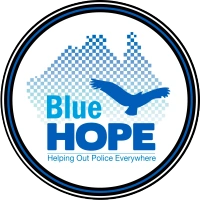Overview
The Biology of Trauma
An explanation of what happens in the body when we experience stress and how that relates to the ‘mind/body’ connection. We often think we can control the mind by being resilient however what really happens when the body does what it is build to do by our biological fight/flight/freeze stress response?
Burnout, the ingredients that cause stress
An outline of stressors that come with the job to assist in understanding why police are under the pump and the way triggers impact reaction versus response. This includes how the organization impacts police resilience.
The medical model verses person centred care
An explanation of the differences between psychiatry, psychotherapy and counselling to assist police and their families to understand the appropriate care to support their individual needs by making an informed choice.
Talking about Suicide
A sensitive conversation around suicidal ideation, which is an ultimate challenge for us all, how this can manifest and what to do if you, a family member, friend or colleague is struggling.
Reaching out for help
What are the options and how can we empower ourselves to live our best life.
Emotional awareness for managers
Information around how to identify and approach staff who are showing signs of burnout. A look at language and sensitivity when speaking with team members and how to use a person-centred approach rather than the penal system.
The role of Chaplains
An open discussion regarding the work of police chaplains and chaplaincy in general and how chaplains can be of support to serving and former police as well as how they assist and support families. This can include assisting when mental health issues arise as well as family crises, relationship breakdown and where there is illness or a death in the family.
Step-By-Step
Mental health professional support
Your doctor can refer you to mental health professionals including:
• psychiatrists
• psychologists
• counsellors
• social workers
• occupational therapists.
You can read about the different types of mental health professionals on the health direct website.
You can also use their find a health service tool to find one near you.
A mental health treatment plan lets you claim up to 20 sessions with a mental health professional each calendar year.
To start with, your doctor or psychiatrist will refer you for up to 6 sessions at a time. If you need more, they can refer you for further sessions. Health professionals set their own fees, so we may only cover some of the cost. Ask how much you’ll pay and what you’ll get back from us when you make your appointment. If they bulk bill, you won’t have to pay anything. If you have private health insurance, you may be able to get some money back. You can check with your insurer.
Help with costs
A mental health treatment plan lets you claim up to 20 sessions with a mental health professional each calendar year.
To start with, your doctor or psychiatrist will refer you for up to 6 sessions at a time. If you need more, they can refer you for further sessions. Health professionals set their own fees, so we may only cover some of the cost. Ask how much you’ll pay and what you’ll get back from us when you make your appointment. If they bulk bill, you won’t have to pay anything. If you have private health insurance, you may be able to get some money back. You can check with your insurer.
Rural and remote support
If you live in a remote area, it might be hard to see a mental health professional. You may be able to have a telehealth video consultation instead. You can claim for video consultation sessions with a mental health professional.
Ask your GP or mental health professional if they offer this service. You can also search the find a health service tool on the healthdirect website for mental health telehealth services.
Content for pathways to help
 25 Oct 2023
25 Oct 2023
ACT Curious
Since 2007 ACT Curious has changed the lives of thousands of Australians through Employee Assistance Programs and therapeutic counselling grounded in evidence based practices.
We have the depth and breadth of experienced therapists who specialise in treating vicarious trauma, PTSD, relationship issues and many other issues. We listen to you and we match you with a therapist who specialises in your area of need which includes police and their family members.
 10 Jun 2022
10 Jun 2022
Addictions
Addictions are formed when substances or behaviours become unhealthy and start to impact function levels.
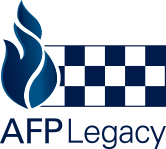 03 Apr 2022
03 Apr 2022
AFP Legacy
Police Legacy provide professional and compassionate support to families who have suffered a loss through the provision of benefits and services. Children who have lost a parent may benefit from camps, scholarships, trust funds and regular social engagement which is also extended to partners and parents. Each jurisdiction has independent services which may differ from state to state.
 03 Apr 2022
03 Apr 2022
AFPA: The Australian Federal Police Association
All Australian Police jurisdictions have Police Unions who provide Industrial Relations, Financial and in some state’s welfare and mental health support and services. Assistance for issues relating to workers compensation, legal matters, necessitous circumstances, and career transition may also be available through your state union. Associate membership for former officers is another way to stay connected to support and services post policing.
 31 Oct 2022
31 Oct 2022
Alcoholics Anonymous
Alcohol Anonymous is based on one alcoholic helping another and offers solutions to dealing with alcohol addiction.
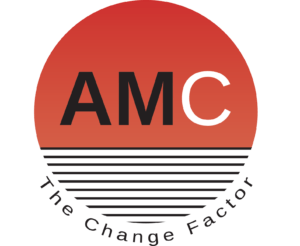 03 Apr 2022
03 Apr 2022
AMC Change Factor (S.A and online nationally)
AMC provides a multidisciplinary holistic approach to supplying services such as mental health management via counselling and case management for individuals, families and couples dealing with anxiety, depression, stress management, grief and loss, problem solving, alcohol and drugs and dealing with conflict. Youth Mental Health Services are also available.
 07 Mar 2022
07 Mar 2022
Anxiety
Anxiety is the body’s natural response to a threat or perceived threat when fear, worries, concerns and apprehension about the future occupies the mind along with physical changes such as a pounding heart, or shortness of breath
 03 Apr 2022
03 Apr 2022
Australian and New Zealand Mental Health Association
Educational materials and events such as annual conferences across Australia assist with engagement across the mental health industry. Educational materials and events such as annual conferences across Australia assist with engagement across the mental health industry.
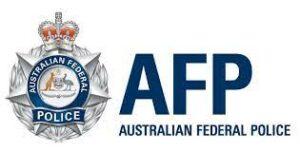 03 Apr 2022
03 Apr 2022
Australian Federal Police
Each individual state police jurisdictions will have mental health services for serving police which should include an Employee Assistance Program (EAP) along with other specific services. This may include EAP for transitioning police, former police up to 12 months and services for families. Career Transition services may also be included in some jurisdictions as moving into a new career after serving in the police force impacts mental health outcomes.
 03 Apr 2022
03 Apr 2022
Australian Federal Police Former Members Association Inc
Staying connected to the police family by joining your local retired and former police association may be helpful in maintaining social connection and positive mental health outcomes. Each state jurisdiction has a retired and former police association where regular monthly meetings and social events assist with staying in touch with former colleagues.
 03 Apr 2022
03 Apr 2022
BeachShack Breathing - Yoga and Breath Practice for Serving and Former Police Based in Wollongong NSW
Kate Kilby is a former police officer and yoga teacher based in Wollongong, NSW offering breathing and yoga practice to assist serving and former police to find peace, recovery and hope.
 30 Mar 2022
30 Mar 2022
Benevolent society
At The Benevolent Society, we put people first and work together as one to meet our vision of a just society where all Australians can live their best life.
Beyond Blue
Support services and online forums to assist with mental health conditions including depression, anxiety, suicide prevention, grief, and loss along with resources, speakers and ongoing research.
 03 Apr 2022
03 Apr 2022
Beyond the Badge Career Transition Program
An independent culturally aware career transition program with corporate partners who support first responders through the transition process. Based in NSW, programs are funded by corporate sponsors to allow serving or former police to attend without the worry of financial burden. Programs generally run for 3 days and cover transferable skills, resume, networking, navigating job platforms and the application and interview process.
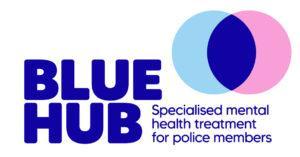 14 Nov 2022
14 Nov 2022
Blue Hub
Provided by TPAV, this streamlined mental health service supports and assists serving Victorian police and Victorian based AFP members. Services include culturally sensitive assessment and treatment options for those dealing with trauma related conditions provided by evidenced based clinicians to assist with Workcover and return to work options.

 Exit
Exit



